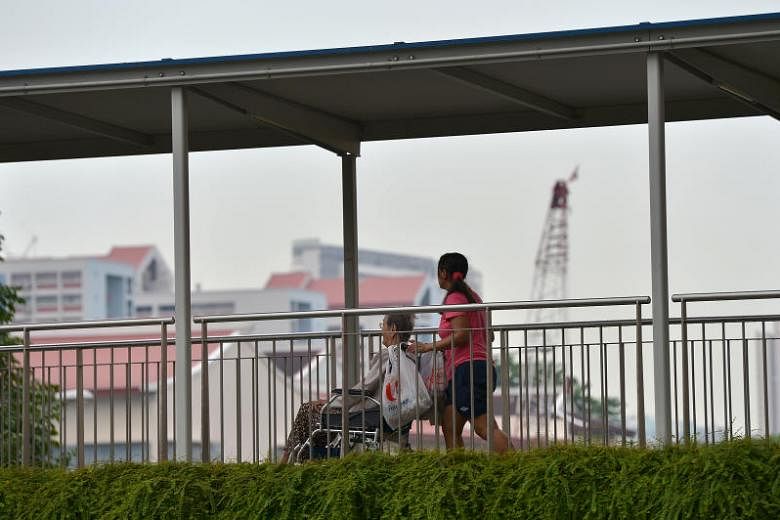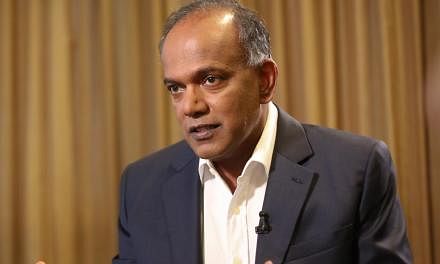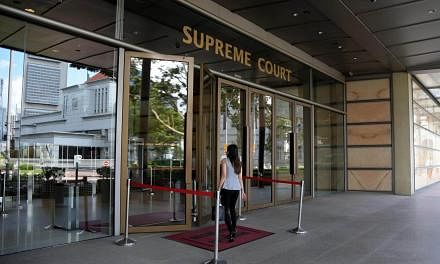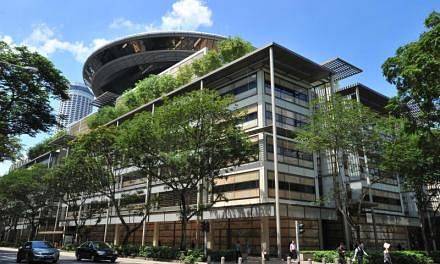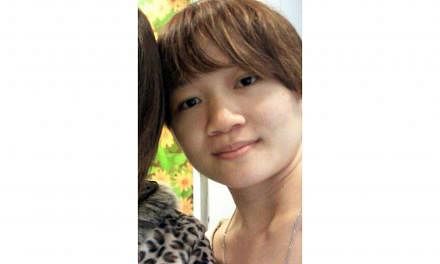Those who fail to take steps to protect their children, maids or disabled charges from being abused could soon be punished under new provisions proposed in the Criminal Law Reform Bill tabled in Parliament on Monday.
Two provisions spelt out punishments for bystanders who know of but fail to take steps to prevent the neglect or abuse of three types of victims: maids, young children and the mentally or physically infirm.
This move is a step in the right direction to enhance the protection of victims who cannot defend themselves, said lawyers and experts The Straits Times spoke to, although some expressed concern that it would be difficult to enforce in practice, despite its limited scope of target offenders.
Only bystanders who are related to the victim will be penalised under these provisions. For example, in the case of maid abuse, the bystander has to be an employer, a member of the employer's household or an employment agent in order to be charged with an offence.
For child abuse or abuse of vulnerable people - disabled people who cannot protect themselves - only caregivers or those who have charge or custody of the victims are liable.
The maximum penalty for such bystanders is a proposed jail term of up to 14 years and a fine of $40,000 for those who allow ill-treatment of a child which results in the child's death, and seven years and a fine of $20,000 for those who allow the abuse of domestic workers and vulnerable people that results in their death.
Such a move imposes a duty on bystanders to intervene where they could reasonably be expected to and is likely triggered by "horrendous" child and maid abuse cases that made headlines in recent years, said lawyers ST spoke to.
Lawyer Amolat Singh said the new provisions give "an added weapon in the prosecutor's arsenal to go after people who should have done something but didn't".
However, he noted this is "not a blanket imposition of duty on everyone". For example, a person who witnesses abuse in a flat while walking along a corridor would not get into trouble under this provision as he has no connection to the victims in this case, said Mr Singh.
"To impose a duty on all and sundry is too onerous, therefore the proposed changes have demarcated the boundaries of this responsibility very clearly," he added.
Lawyer A. Sangeetha noted that this law would be most handy in family situations. "Due to family dynamics, a person might be unwilling to intervene and the whole reason for bringing up this provision is to take that mindset away, to make sure that people don't get caught up by personal relationships and not take action," she said.
A husband who knows his wife abuses their maid, but does not try to stop her, could now be taken to task, instead of simply being let off with a warning , she added.
However, she was concerned about the scope of the law as it is worded such that bystanders would be penalised as long as "there is reason to believe" that abuse has happened. "It moves away from what the individual actually believed or saw, to what it should have been," she added.
Lawyer Sunil Sudheesan said another operational problem would be that bystanders would have difficulty finding evidence to prove they did not know of the abuse.
Child protection specialists and foreign worker activists were also concerned about how the law might be enforced.
Ms Serene Tan, director of Big Love Child Protection Specialist Centre, noted that there are many limiting factors that prevent a person from reporting abuse, particularly in family settings. "What if they relied on (the abuser) for financial support, or what if the wife is on a dependant's pass? It's more complicated than just putting the law in place that will prevent abuse."
Correction note: This article has been updated to reflect the correct surname of Ms Serene Tan, director of Big Love Child Protection Specialist Centre. We are sorry for the error.
